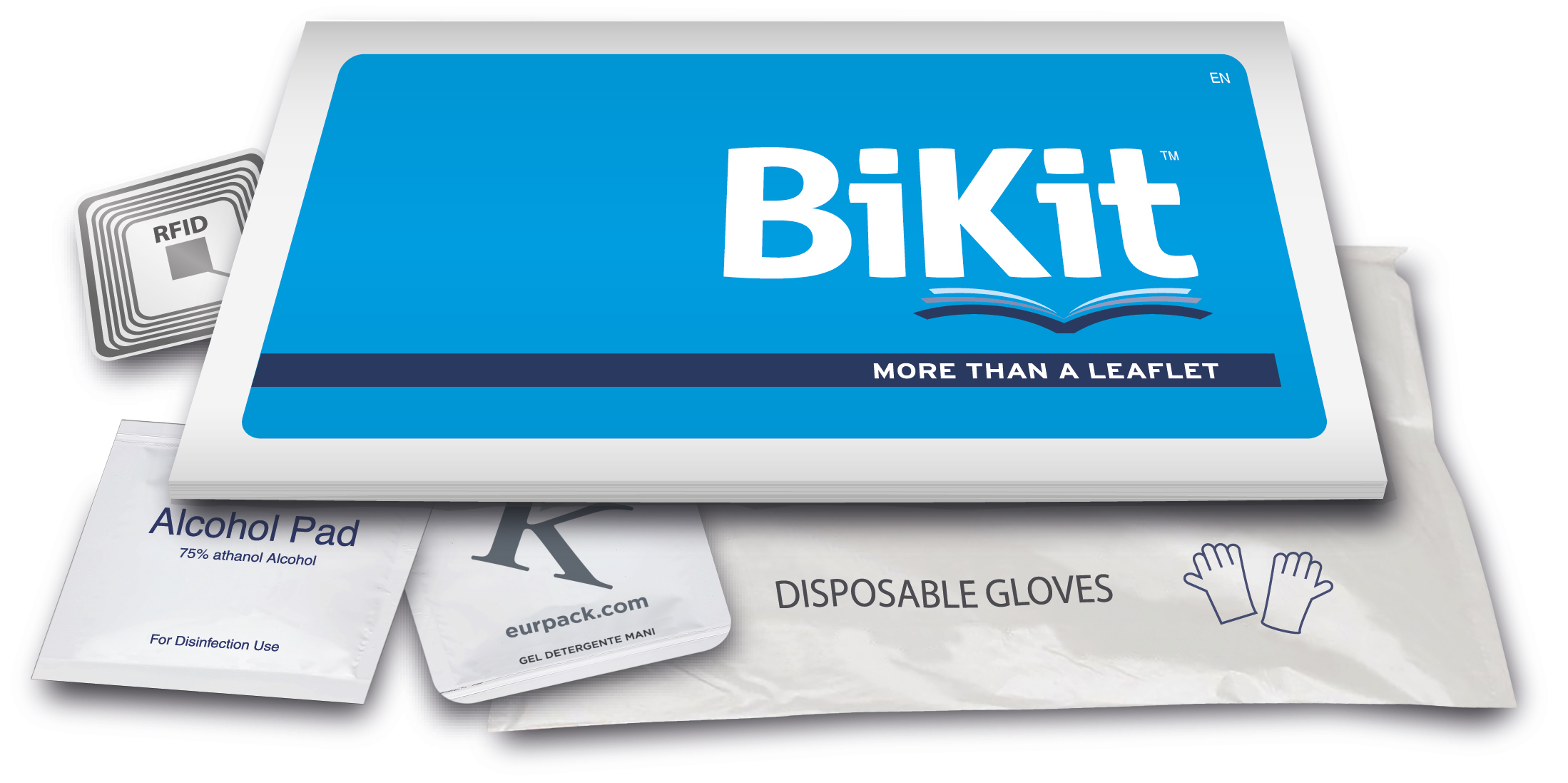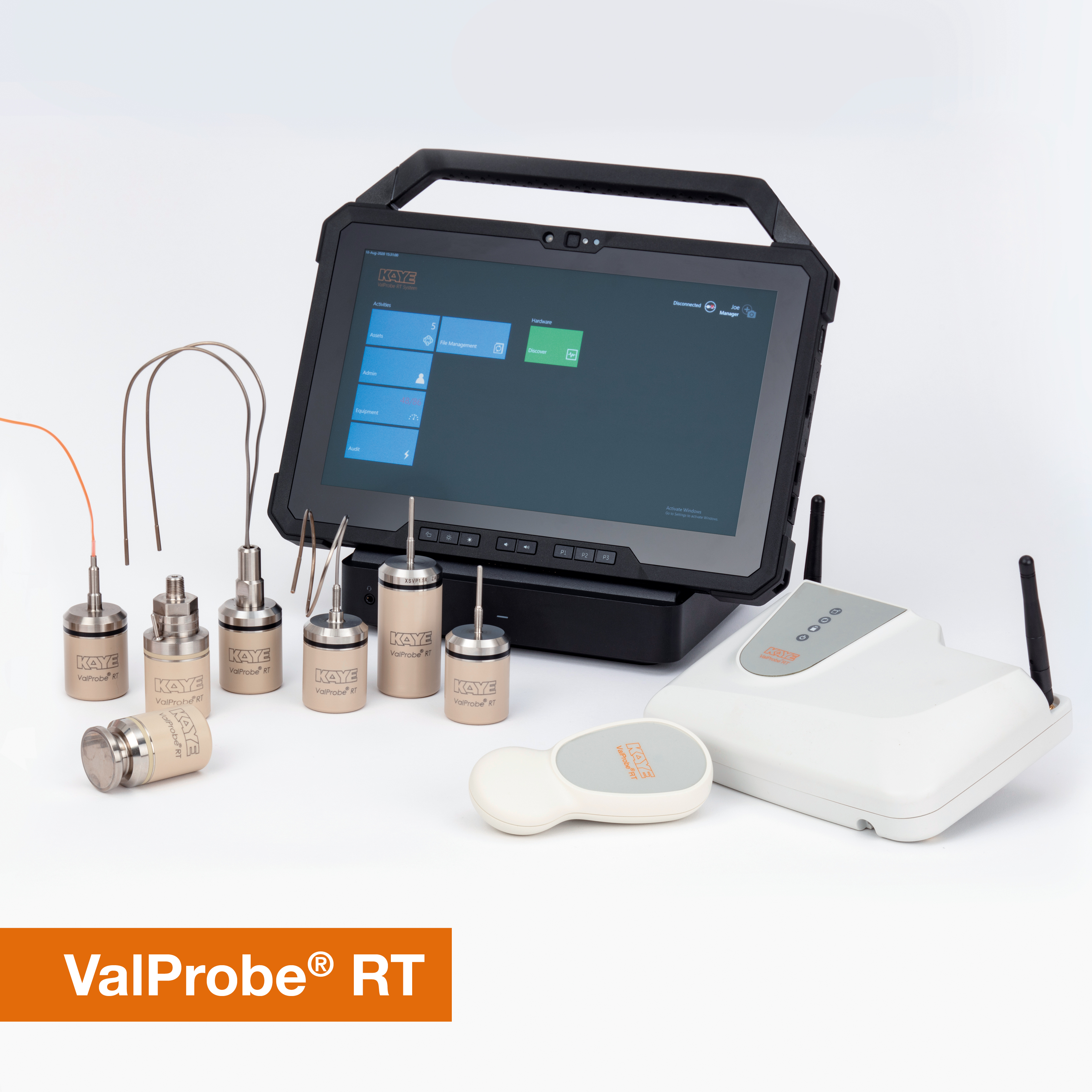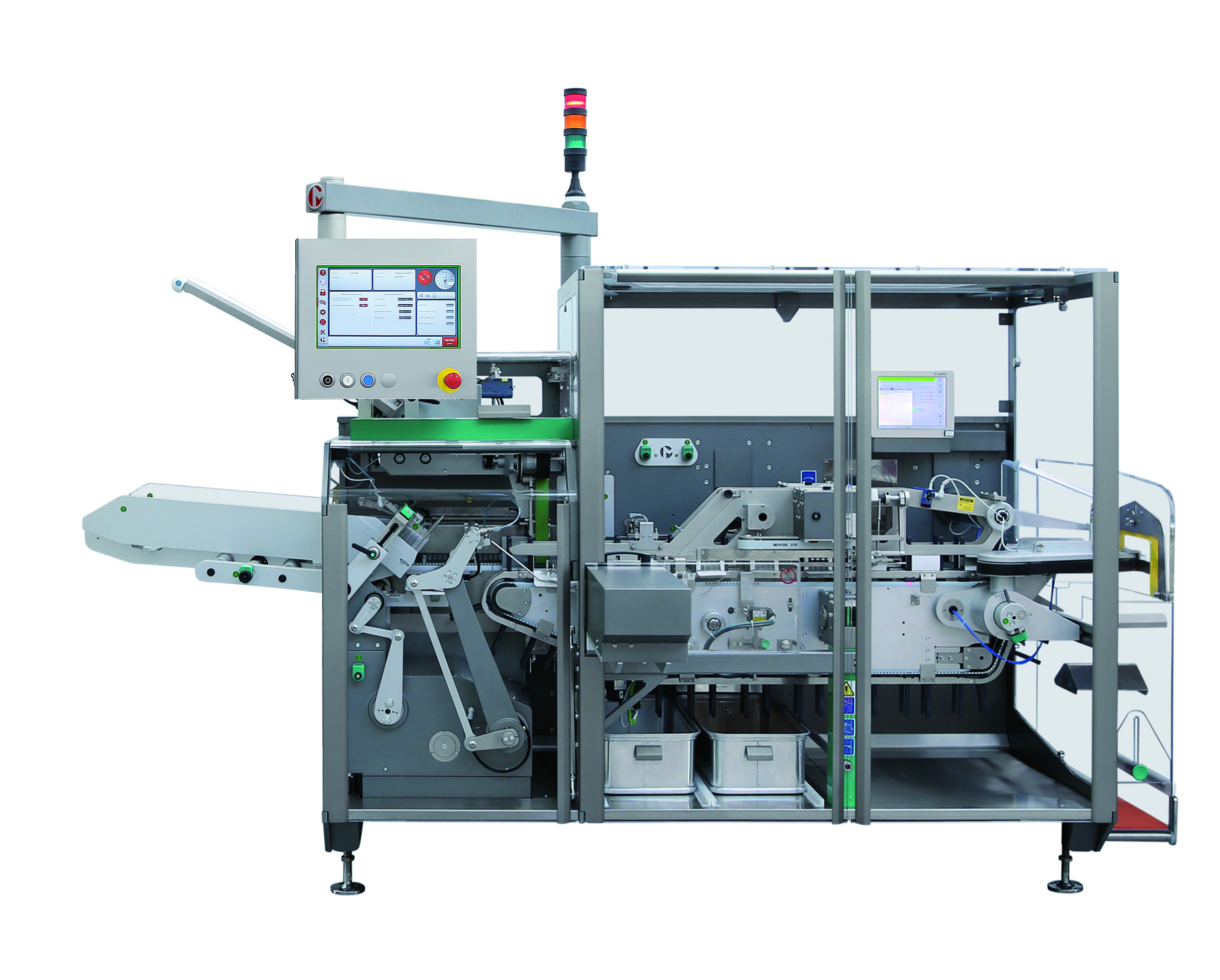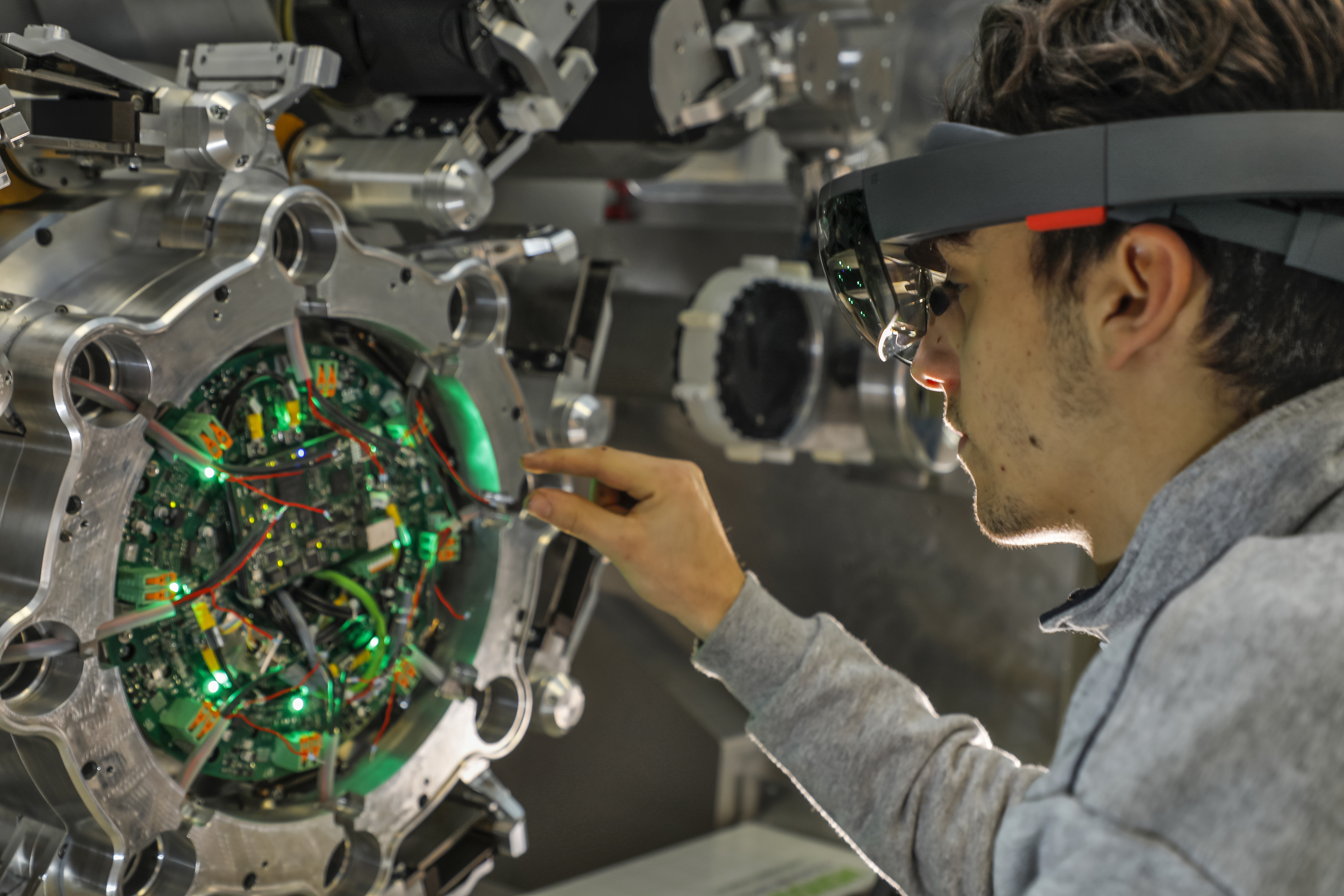Officine Ronchi: Italian design and quality with a focus on the world of research
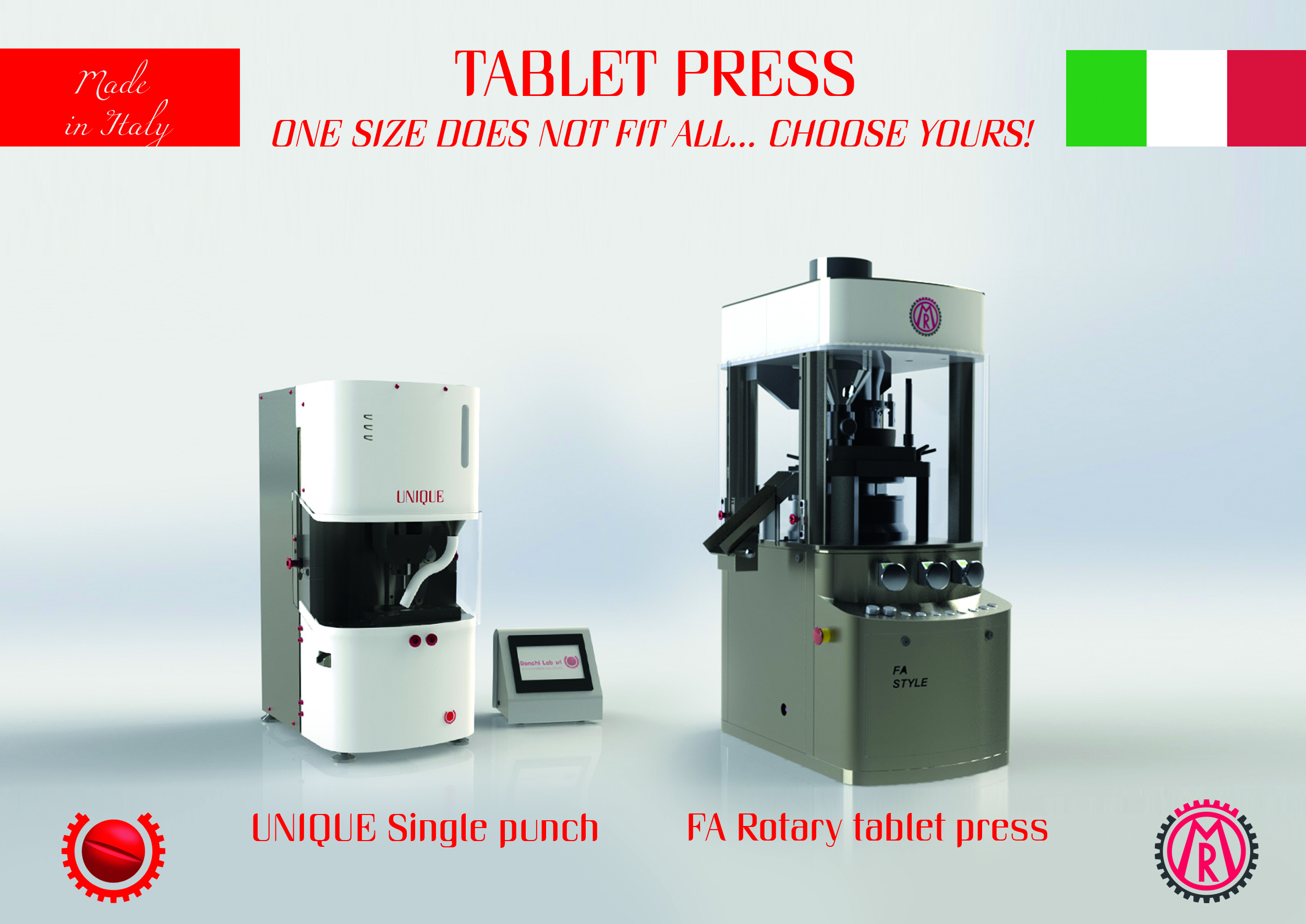
Officine Ronchi, a family company from Lombardy specializing in tablet press for oral solids, has been producing technology for the pharmaceutical, nutraceutical, chemical and food markets since 1947, exporting all over the world. We asked Sara Ceitanya Ronchi, sales manager of Officine Ronchi and part of the ownership team, for a market perspective, in light of the company's excellent performance in the two-year period 2020-2021.
What technology do you value in this period?
Tic Tac di Ferrero, nel food, a brand nazionali, protagonisti del mercato nutraceutico come Aboca e Phoenix, ad aziende farmaceutiche storiche
"Compressors serve very different markets," says Sara Ronchi, " that’s why our customers range from Ferrero's Tic Tac, in the food sector, to national brands, protagonists of the natural nutraceutical market such as Aboca and Phoenix, to historical pharmaceutical companies such as Bracco, to pharmaceutical leaders of world renown. The large industrial groups are only part of our business horizon, which is now experiencing significant growth thanks to the world of research and development. In recent years, we have focused on R&D machines for universities and pharmacies, for which we have designed a single-punch machine. Our machines are in fact rotary and occupy large spaces, with production ranges between 10 and 60 stations, i.e. the number of tablets produced per revolution. These are oversized devices for the needs of small laboratories and research centres and in general for small production batches. We have therefore tried to specifically serve a market such as the labs market, which certainly needs smaller sizes and productions, reaching the point of meeting the need right down to the individual tablet. down to a single tablet. Our answer is UNIQUE, which expresses a different concept from the classic lines for industry, to follow productions with small volumes.
As for the university world, we supplied our technology to the Universities of Pisa, Camerino, Naples, Federico II and Catanzaro, which has taken a rotary machine for larger productions. Supporting activities that lead to publications, product development and experimentation means boosting research in Italy and creating space for the younger generation of researchers, which is a very important issue for us.
The two-year period 2020-2021 was very lively, interesting, with new customers, projects and orders. For us, therefore, new prospects, not only because the pharmaceutical world in these two years has been driven by the pandemic, but also because we see the benefits of a far-reaching industrial policy such as the Industria 4.0 tax credit measures, which have also strengthened nutraceuticals, which have been growing strongly in recent years. The line of products for pharmacists, moreover, was a great intuition, which had excellent results despite the overload experienced by the industry due to the variety of services they have had to offer, including vaccines and tampons. An overload that slowed down deliveries, but not the success of the product.
Returning to nutraceuticals, they were certainly one of the most dynamic sectors during the pandemic period, both as a health support product and as a wellness vehicle. One of our clients, Long Life Phoenix, carried out studies on vitamin B-12 capsules and found a significant increase in consumption during the health crisis.
Looking at the markets in general, we have noticed great dynamism in the Italian market, while abroad, which has also seen a positive trend, the main problem was that of testing: a very complex issue from a technological point of view, due to the time zones and the absence of the machine on site. We therefore specialized in demos video and tutorials, developing technological tools to follow the customer and overcoming various technical problems. One of these is the management of images and lights, in the presence of stainless steel, a very reflective material that makes photos and videos difficult. That's why we have equipped ourselves with professionals who have allowed us to transmit quality images, which have made it easier for customers to carry out the FAT remotely.
A test for a machine with a regular customer is easier, but for new customers the complexity increases. For example, we followed a FAT in Bangladesh, where a customer bought two machines that we successfully tested amidst a fluctuating network, time zones, language difficulties and all the obvious criticalities that such a situation entails. Longer but effective tests: a successful example of Italian style. Certainly, these experiences have allowed us to put an extra service in the catalogue, dividing it between remote testing and testing at the customer's premises: coming to our premises also means getting to know each other, getting in touch and enjoying a few moments of leisure in our beautiful country. We look abroad a lot with markets ranging from South America, particularly Colombia and Peru, and we work a lot with Cuba. Of course, an important market is Europe as well as the Middle East: Jordan, Iran, Egypt and the Maghreb.
What are your expectations of the event?
"After two such complex years, it is not easy to make predictions, but trade fairs in general are going to be a success, especially the return to presence is the best response to the need for sociality, exchange and comparison. The technological interest is there, as is the desire to see new things, especially after two years of hyper-work and concentration on deliveries and tight deadlines, which our sector has experienced. It's time to get back to sharing, to a vision that goes beyond everyday life and the many problems it has imposed. I therefore expect interest and participation both from Italy and abroad, considering that there is one aspect we are very happy about, namely the concomitance between Pharmintech and IPACK-IMA.
Two trade fairs in which we have always believed a lot, but which posed serious organisational problems due to their location in two different cities. That is why this synergy is a choice that convinces us greatly: it enriches the business potential and the transversality of the experience at the fair, where we will be proposing some important innovations. As I mentioned, we are focusing on research with products that are successful even among large companies such as Chiesi and Menarini, which in any case use laboratory machines for tests, small batches and research projects. Our competitors are focused on production, with large and fast machines. We therefore focused on the laboratory machines that we will be exhibiting at the fair. In particular, we are talking about the FAStyle 8 - ride rotary tablet press, completely redesigned and new for the 2022 edition of IPACK-IMA; the UNIQUE, a small single-punch for pharmacies and, finally, the FATop, an automatic rotary tablet press with self-adjusting compressed weight. "
What do you see in the market in the coming months?
"I would never have been able to bet on a 2020 and 2021 with results like those we have had, so it is difficult to think about the future today. In these two years, also thanks to Industry 4.0, the market has been distorted because many have bought instead of overhauling. That's why I expect the overhaul trend to start, which will certainly be the need for those who have a new machine. We are also looking a lot at the African and Middle East markets, which require much longer negotiations than in Europe. For example, in Egypt we work with the government agency that deals with industrial development, making purchases and then placing them with companies: operations that require negotiations of 2 or 3 years. That's why the markets of developing countries are interesting but complex. As for as the Italian market, I see excellent prospects, with an extra push on nutraceuticals compared to pharmaceuticals. Certainly, Industry 4.0, extended in December, still has its own important driving force, thanks to savings of 40-50%, which in many cases motivated the purchase compared to a revision at practically the same figures."
